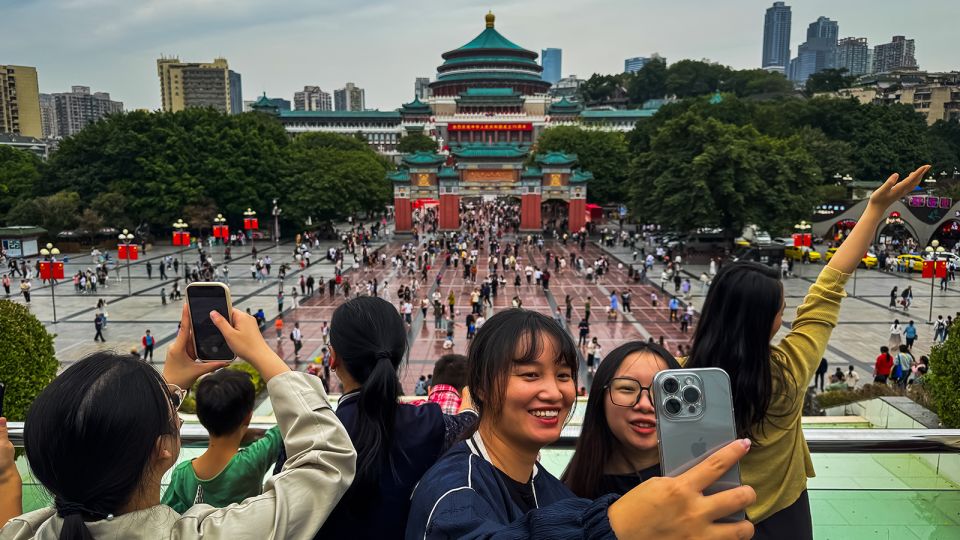Global investors went crazy during Chinas just ended the Golden Week holiday by experiencing “everything” that has to do with the country. But that optimism did not extend to shoppers and travelers in the world’s second-largest economy itself.
Economists at Goldman Sachs wrote in a research note on Tuesday that tourism revenue per person was 2.1% below pre-pandemic levels during National Day Golden Week, a seven-day period that ended Monday. Weak consumption draws attention to an ongoing problem with consumer confidence.
“Low per capita tourism expenditure and subdued prices for services pointed to still weak domestic demand and the continued decline in consumption,” they said. “It remains to be seen how much more easing, especially on the fiscal front, will be announced in the coming months and to what extent it can help stimulate domestic demand (especially consumption), normalize prices and restore confidence.”
Matters are so dire that some economists are urging the government to unleash a major stimulus package worth up to 10 trillion yuan ($1.4 trillion) to restore bullishness in the world’s second-largest economy, which is experiencing a faces a whole range of economic problems, including falling prices. .
Goldman Sachs added that anecdotal evidence indicates that hotel prices and airfares during the holidays were lower than year-ago levels. A year and a half after China reopened its borders following the Covid-19 pandemic, consumer confidence is still struggling to recover.
There were some bright spots. According to official datacross-border trips increased by approximately 26% to 13 million trips, compared to last year’s holiday period. International flights grew 42% from a low 2023 base, according to Citi.
After a slew of weak economic data over the summer raised concerns that China might miss the 5% growth target announced in March, leader Xi Jinping ultimately decided to press ahead with a much-needed stimulus package, mainly focused on monetary measures. last week of September.
Stock markets soared due to the perceived reversal in government policy. David Tepper, the billionaire founder of US hedge fund Appaloosa Management, told CNBC in an interview on September 26 that he was buying more of “everything” related to China.
But experts say much more needs to be done to revive confidence, which neared an all-time low this summer.
On Wednesday, stock markets in Shanghai and Shenzhen saw a sharp reversal of recent gains, while the Hong Kong benchmark Hang Seng Index tumbled after its best two-week run in almost two decades. (China-related stocks were in the black on Thursday.)
The declines came after China’s top planning agency, the National Development and Reform Commission, largely refrained from announcing a major stimulus package at a news conference on Tuesday, disappointing investors.
Now investors are looking forward to another highly anticipated press conference scheduled for Saturday with the Treasury Department, with investors still hoping that more direct stimulus measures will be announced.
For more CNN news and newsletters, create an account at CNN.com

